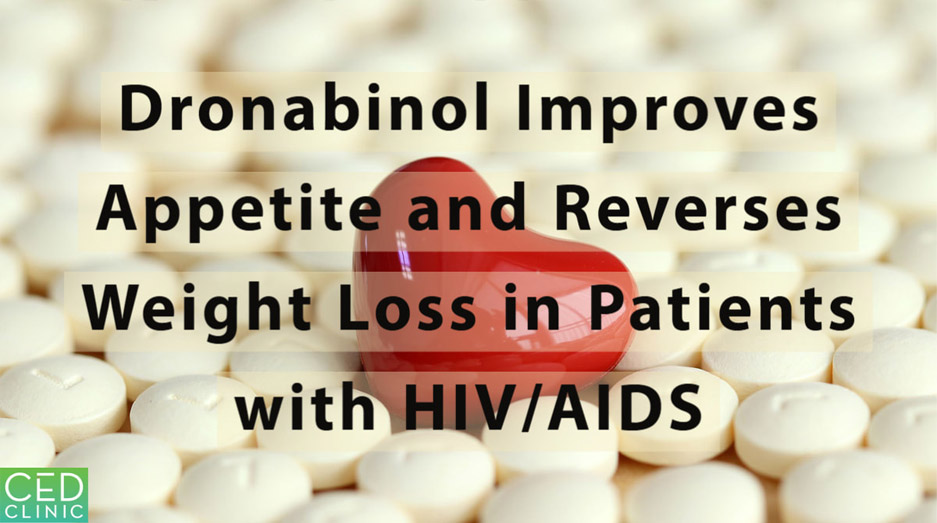HIV wasting syndrome is defined as the involuntary loss of more than 10% of baseline body weight and is associated with chronic diarrhea, weakness, or fever. This common complication of HIV has been shown to increase the risk of death and of opportunistic infections as well as reduce the quality of life for patients. For such reasons, increasing appetite, maintaining weight status and improving nutritional status constitute a major focus of palliative care for HIV/AID patients.
Dronabinol is the synthetic form of the cannabinoid tetrahydrocannabinol naturally occurring in the plant cannabis. A clinical trial orchestrated by physicians from multiple healthcare facilities across the US showed that among HIV patients who experienced consistent weight loss over the prior 12 months, 63% maintained or gained weight upon initiation of Dronabinol treatment. In patients receiving dronabinol for 1 year, the average weight gain was 3.7. The percentage of patients experiencing loss of appetite decreased significantly from 71% at the point treatment began to 26% at 1 month and continued to decline throughout the study period. Similarly, the percentage of patients experiencing nausea, which was 38% at the point treatment began, decreased consistently from week 2 on, reaching as low as 25% at month 6th. Equally important is the finding that incidence of adverse side effects caused by Dronabinol was very rare among HIV patients. In summary, this study provided valuable evidence that Dronabinol is a safe and highly effective medication for treating HIV wasting syndrome.

